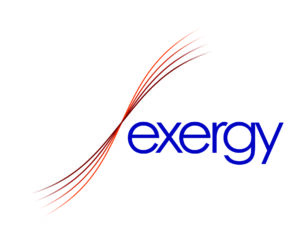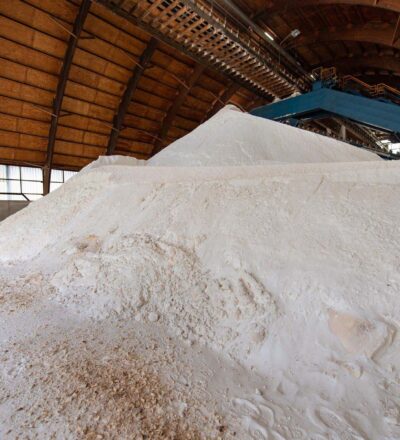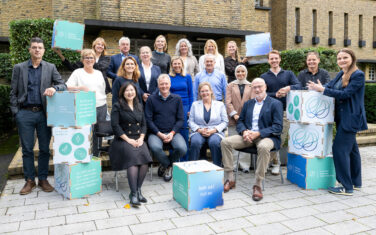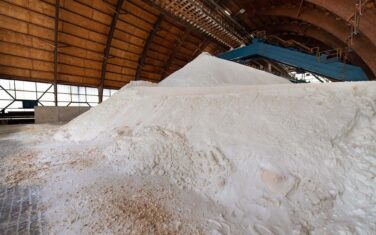Storage of electricity will play a major role in the energy transition. Lithium-based batteries are now being produced on a large scale, but require expensive resources that are not widely available. Further safety concerns of lithium batteries limit large-scale use. Recent research indicates that sodium battery cells could be an alternative, offering comparable or even better performance.
In short:
- Energy storage is going to be a major factor in the energy transition. Storage of electrons is now often done in lithium-based battery cells. Lithium is costly and not widely available
- Sodium-batteries cells have the potential to match or out perform lithium counterparts while being cheaper, safer in use, and abundantly available
- Nobian, Exergy Storage, the University Twente and ISPT collaborate to create a value stream for more renewable and sustainable battery chemicals
Energy storage in sodium battery cells
Unlike lithium, sodium is abundantly available and easy to extract in the form of salt (NaCl). The partners in this project have demonstrated on a laboratory scale that the most important and active component of the new battery, NaAlCl4, can be produced more easily and sustainably compared to the current method. The new production process mixes sodium chloride, aluminum and chlorine in a reactor, allowing NaAlCl4 to be produced at lower temperatures.
In addition to replacing lithium with sodium, this innovative production process uses less energy than current methods. By using raw materials that are produced by electrical processes, such as chlorine, the carbon footprint is significantly reduced. The required raw materials, such as salt (sodium chloride, NaCI), are abundantly available, ensuring strategic independence for the Netherlands and Europe in the field of energy storage at lower costs. The project aims to create a new battery value chain in the Netherlands, from salt extraction to battery production.
New production process for NaAICI4
The production process of the the sodium (NaAlCl4) requires a reaction of NaCl with aluminium chloride. This process requires several pre-processing steps at high temperatures. in this STARBATCH project a novel single-step production method for NaAlCl4 will be developed.
- Reaction and process conditions will be studied
- Several materials will be tested
- Development of scaled-up production process of battery chemicals
Header image: © Nobian
You might also be interested in
Acknowledgement & partners
This project is co-funded with subsidy from the Topsector Energy by the Ministry of Economic Affairs and Climate Policy.






